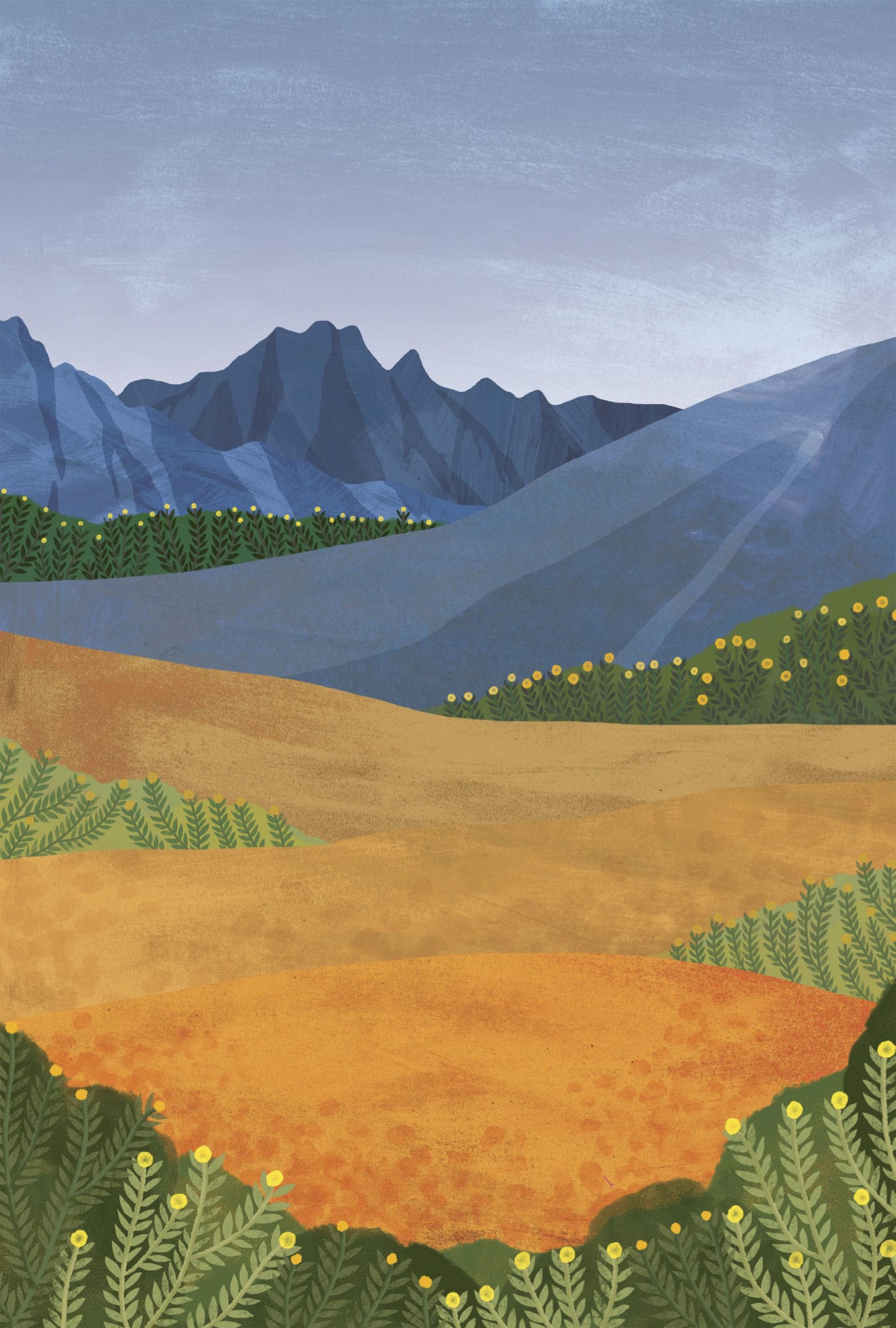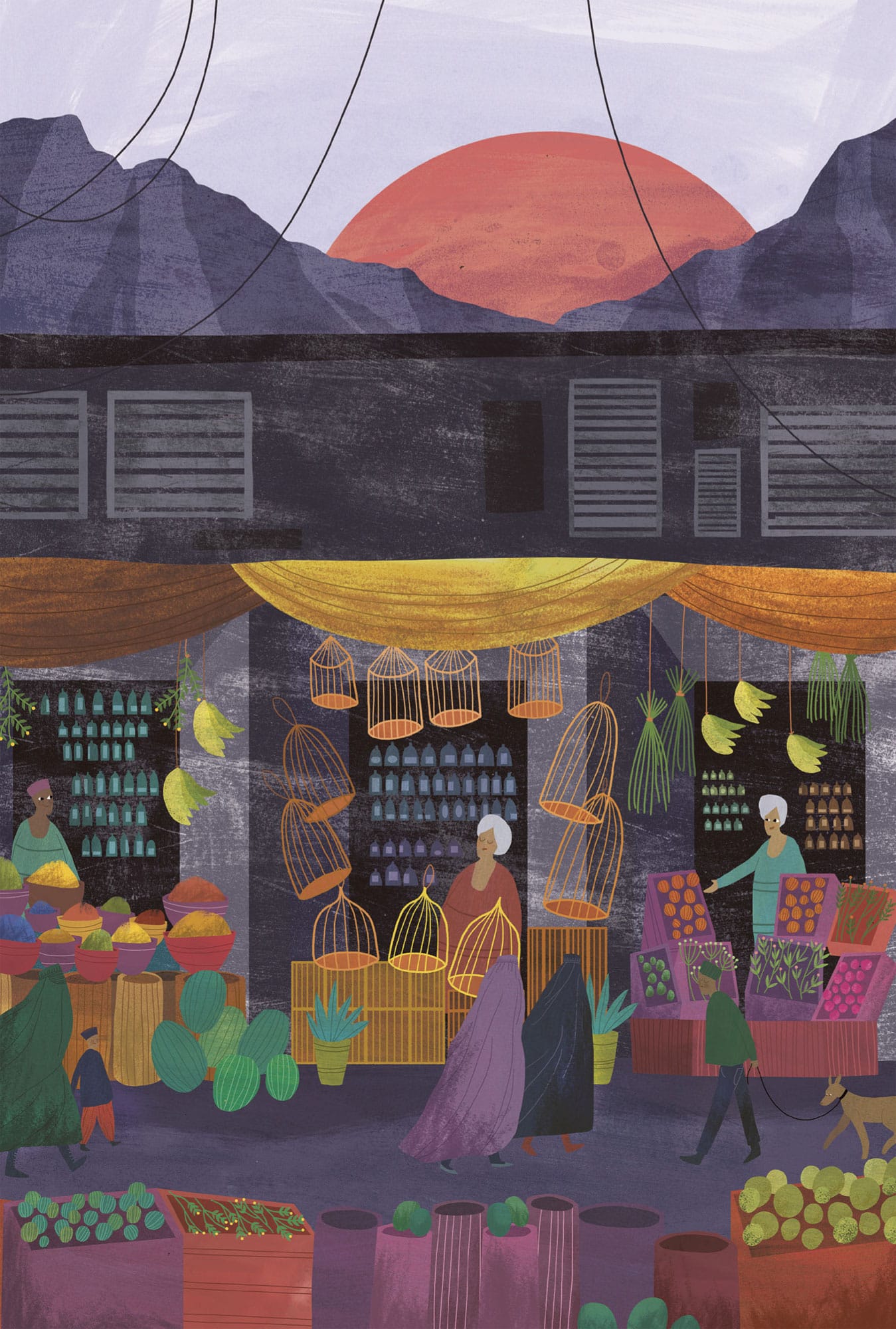KABUL
Which? |
The Kite Runner by Khaled Hosseini (2003) |
What? |
Afghan capital and Silk Road city of ancient culture cut down by modern tragedy |
LIFE PICKS itself up, shakes itself off and continues at the bazaar. Despite the ever-present mess and menace, crowds still throng to the pastry shops, spice sacks and rails of knock-off T-shirts – even in times of turmoil, one needs to dress and eat. People flow around the bloody, hook-hung carcasses and the severed sheeps’ heads. They step around loaded wheelbarrows and the spewed pulp of pomegranates, oozing like entrails. They crouch on their haunches, haggle for phones and sit in cafés, sipping glasses of sweet black tea. They breathe in the smells of grilling lamb, diesel, dust and destruction – the intoxicating perfume of the ancient city and its current troubles …
The Kite Runner is as close to Afghanistan as most of us will ever get. The Central Asian nation of harsh desert, breath-stealing mountains and tribal loyalties is one of the most dangerous in the world. But no government travel advisory precludes taking a trip there via the words of Khaled Hosseini, whose debut novel speaks of both the vibrancy of late-20th-century Afghanistan and the horrors that have torn it apart.
Kabul has existed for around 3,500 years. Tucked between the mighty Hindu Kush mountains, it was long a strategic stop for traders toting their silks and spices between Europe and Asia. It became capital of Afghanistan in 1776.
The Kite Runner begins in 1970s Kabul, the story of young friends Amir, a wealthy Pashtun, and Hassan, a poor Hazara, whose lives are shaped by loyalty, cowardice, ethnicity and political upheaval. Their passion is kite-fighting, the local pastime of choice, which sees boys – always boys – send their missives of bamboo and bright tissue paper into the skies to do battle with other fliers. The string is coated with a resin of glue and crushed glass, rendering it sharp enough to cut down an opponent; running to collect the vanquished kite from where it falls is the ultimate trophy.

This early Kabul is a revelation. Not only is the air filled with playful, colourful kites, the city seems far from the extremist war zone its name conjures today. The Kabul of the 1950s, 60s and early 70s was surprisingly cosmopolitan and liberal in outlook. There were cocktails and short skirts; the foreigners browsing the bazaars weren’t soldiers but hippies, who flocked to the ‘Paris of Central Asia’. Hosseini was born in 1965 into this ‘golden age’ of culturally rich Kabul. He left in 1976 and was later forced into permanent exile in the USA.
The events that shaped the author’s life also shape The Kite Runner. In 1973, the Communist PDPA staged a coup, Afghanistan’s monarchy fell, revolution flared and, in 1979, the Soviet military invaded. Thousands fled to Pakistan and beyond – just like Amir and his father, Baba. After nine blood-soaked years, the Soviets withdrew and civil war erupted. In 1996, the Taliban took control, at first a welcome relief from the infighting. But then the fundamentalist laws rolled in. Thieves were punished by amputation. The ‘un-Islamic’ flying of kites was banned. Adulterers were stoned to death – in The Kite Runner, adult Amir witnesses such an atrocity during halftime at a football match, when he returns to Kabul in 2001. After years of living in the USA, Amir says Kabul is like ‘running into an old, forgotten friend and seeing that life hadn’t been good to him, that he’d become homeless and destitute’. The city he remembers has become a husk roamed by beggars, strewn with rubble, ruled by fear.
The Kite Runner ends in 2002 – after September 11 and the US invasion of Afghanistan. NATO officially ended its combat mission in the country in 2014, but the country remains complicated, the Taliban resurgent. So Kabul is dangerous – but life rolls on, as it must for those who have no choice. And boys may fly their kites again, over the rooftops and bomb craters, up towards the sun-scorched mountains. Flashes of colour against the dust and the debris, continuing the fight.
